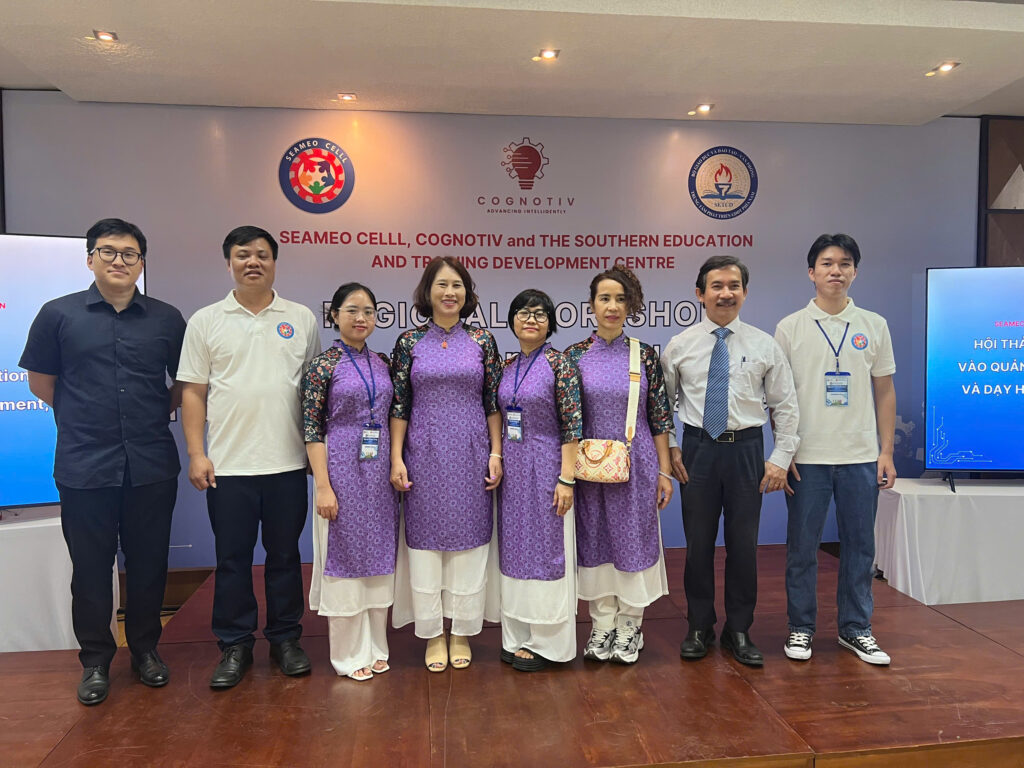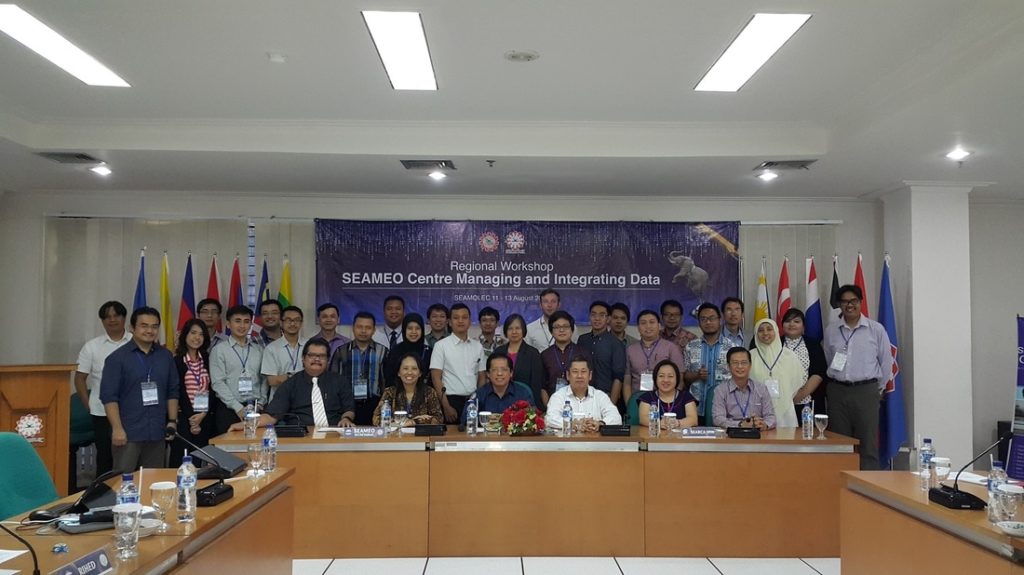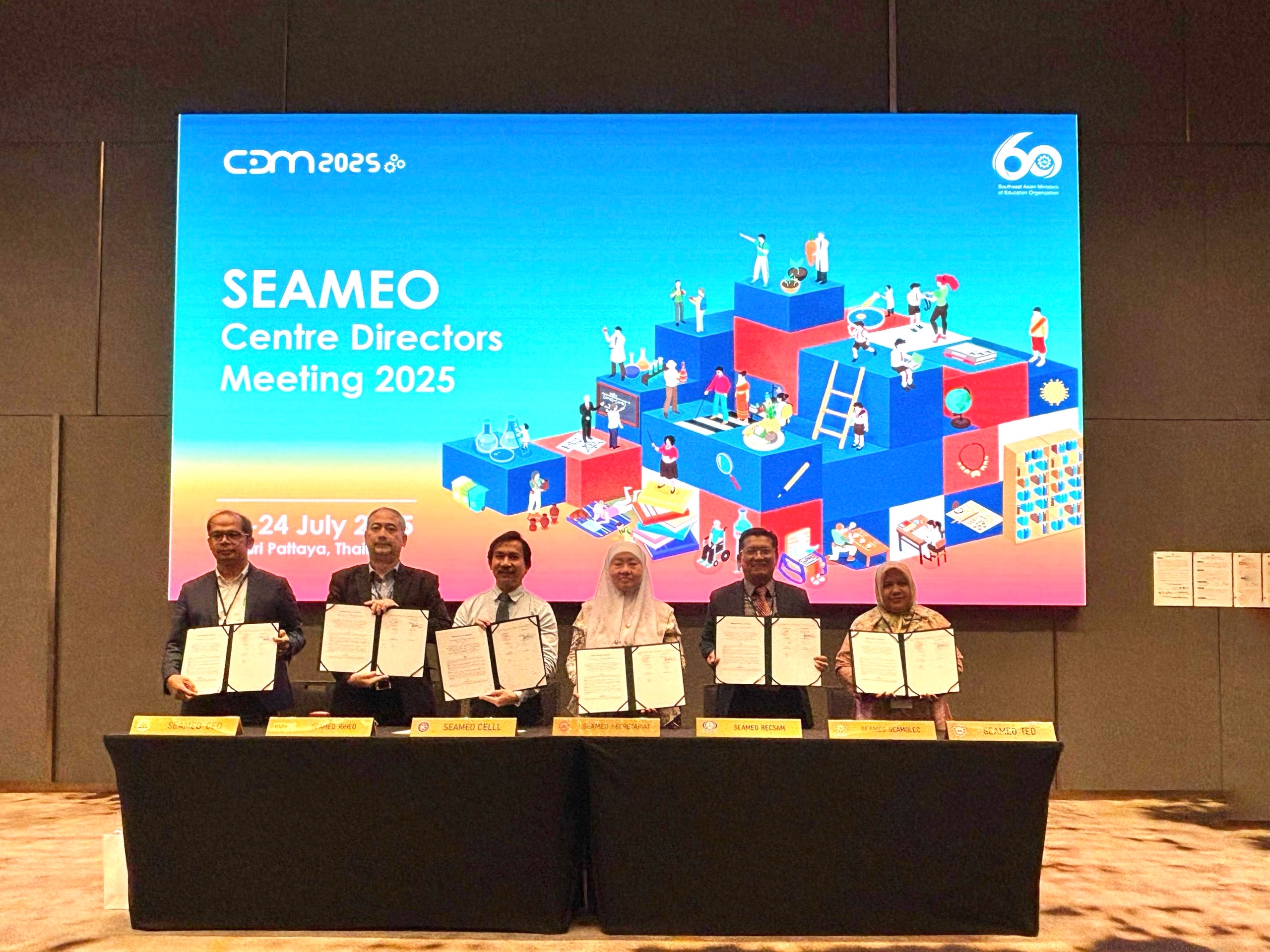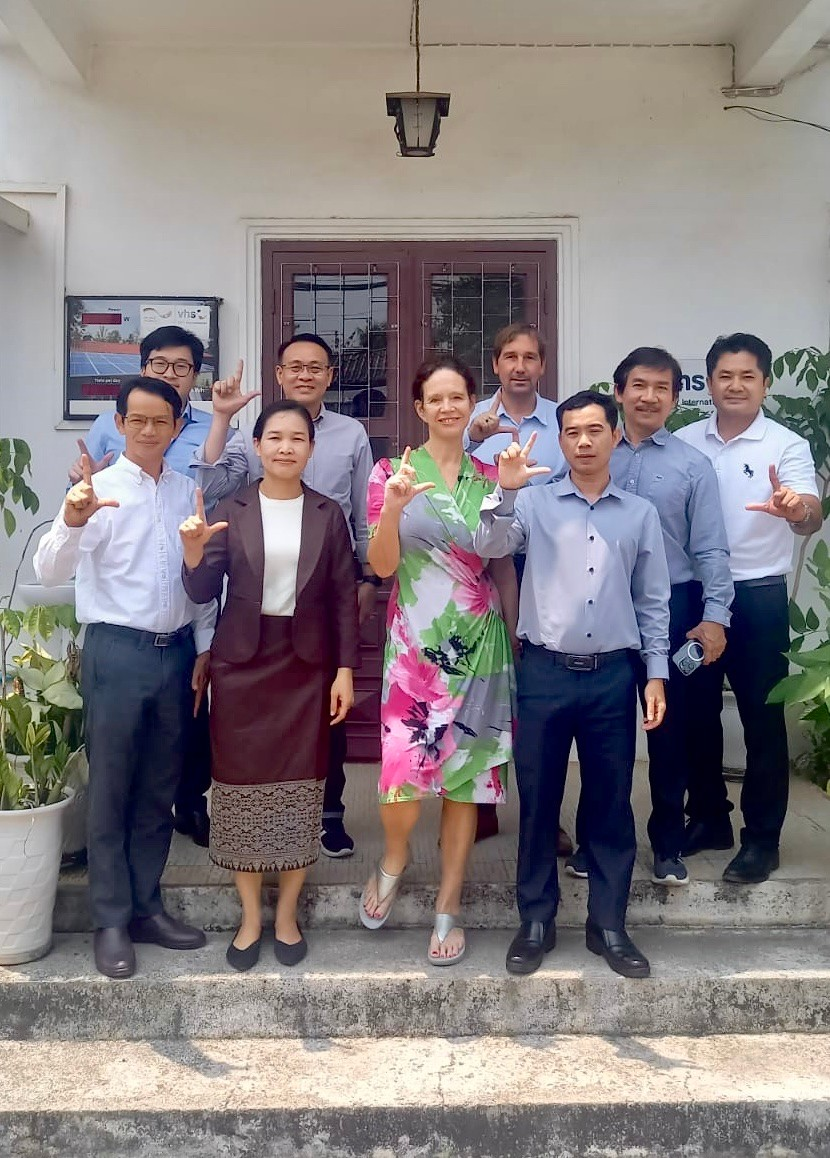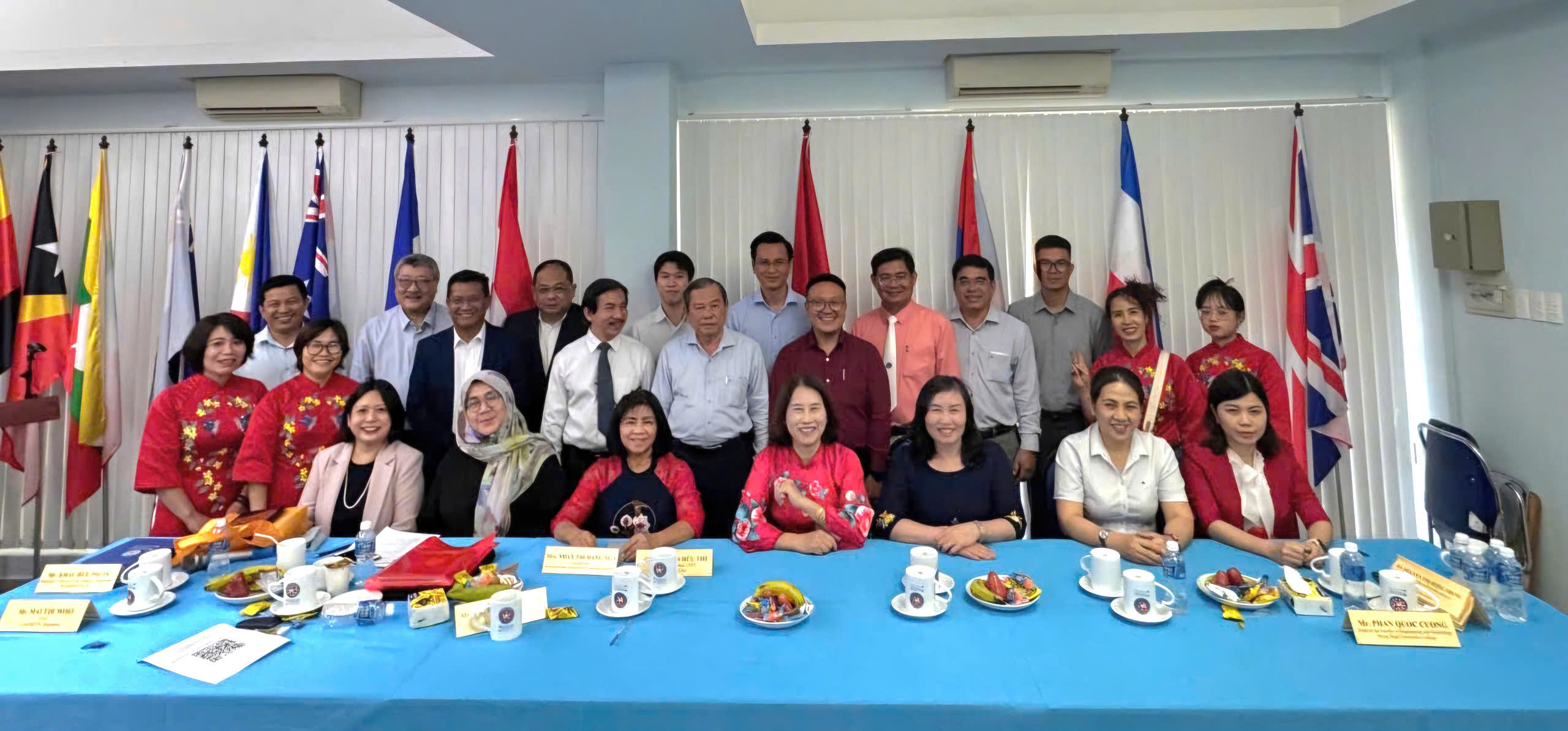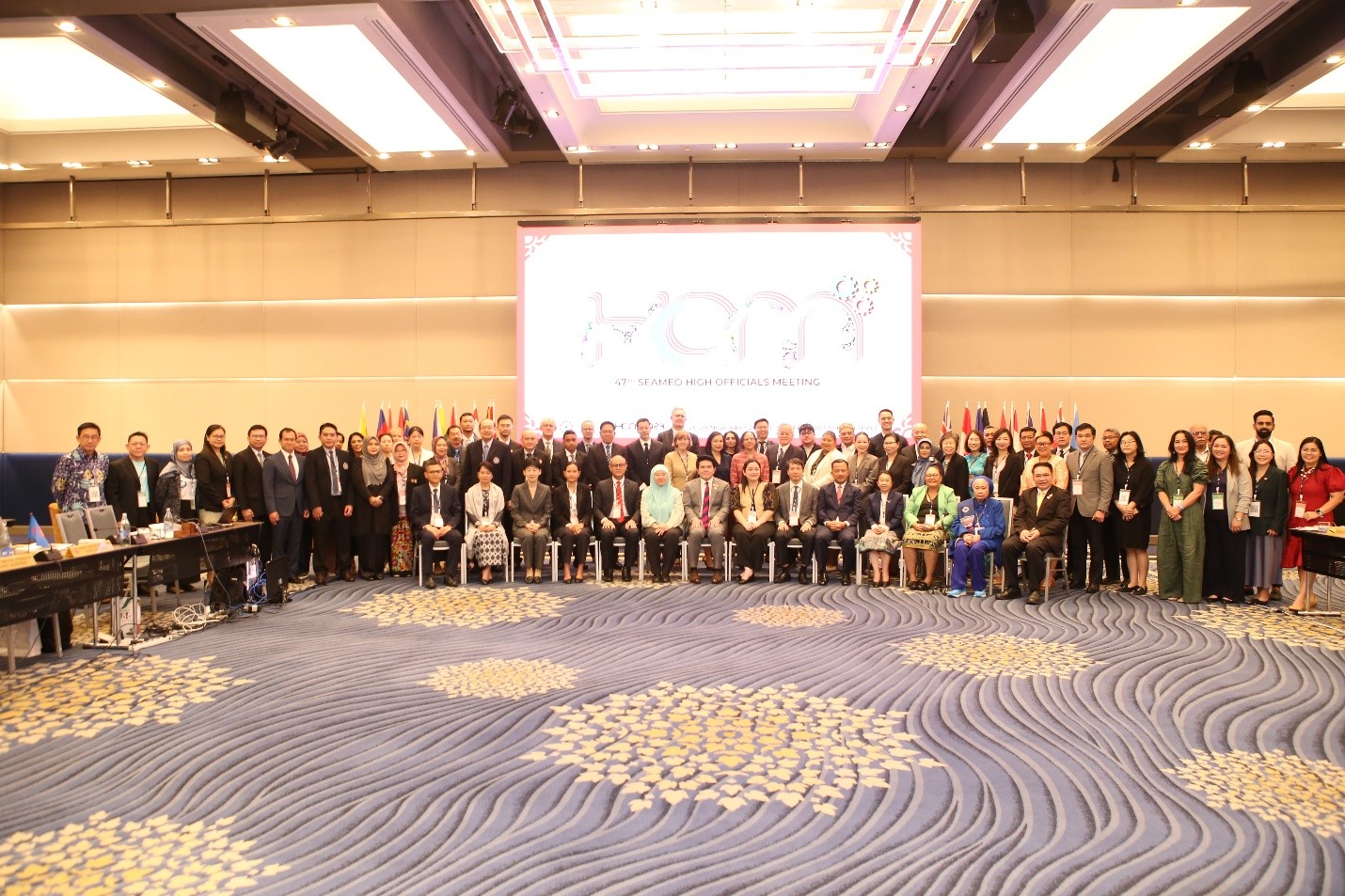On 17th October 2024, at the Southern Education Development Centre – Office of the Ministry of Education and Training, located at 3 Cong Truong Quoc Te, Vo Thi Sau Ward, District 3, Ho Chi Minh City, SEAMEO CELLL, in collaboration with the Southern Education Development Centre (SEDC) and experts from Cognotiv Company, Singapore, held the seminar “ARTIFICIAL INTELLIGENCE (AI) INTEGRATION INTO ORGANISATION and SCHOOL MANAGEMENT, and TEACHING.”
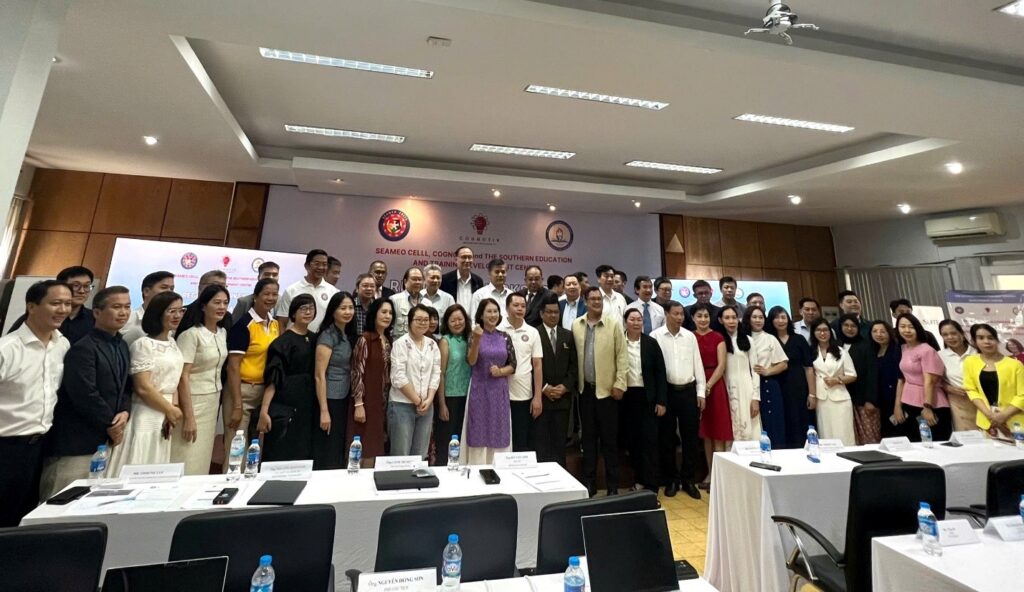
Cognotiv, SEAMEO CELLL’s strategic partner, is a technology company based in Singapore that has now expanded its network across several Southeast Asian countries. The company focuses on developing and providing AI platforms for job search, research, and training activities. This seminar is part of the broader roadmap between SEAMEO CELLL and Cognotiv, following the agreement signed by both parties not long ago.
The seminar attracted nearly 100 invited delegates, including members of SEAMEO CELLL’s Governing Board from countries in the region; leaders from various departments of the Party Personnel Committee; leaders from units under the Ministry of Education and Training (MOET); as well as leaders from universities, educational institutions, and national, regional, and international educational organisations.
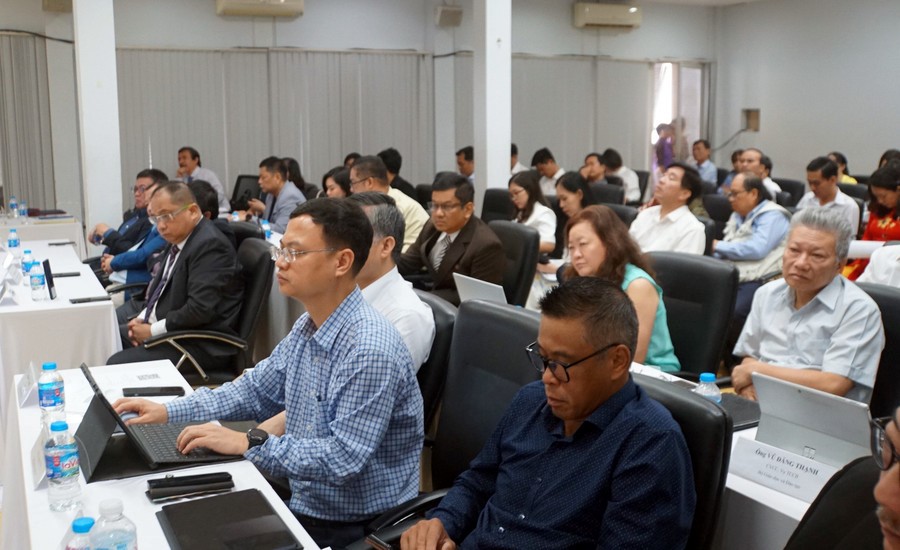
The event commenced with the opening speech by Assoc. Prof. Dr. Nguyen Van Phuc, Deputy Minister of Education and Training. The Deputy Minister warmly welcomed the distinguished delegates to this important seminar on the topic of Artificial Intelligence (AI). He noted that AI is ushering in a new era for humanity and is no longer an remote concept. Naturally, AI has become a global trend, and people around the world are using it to drive innovation, streamline organisational operations, and enhance learning experiences.
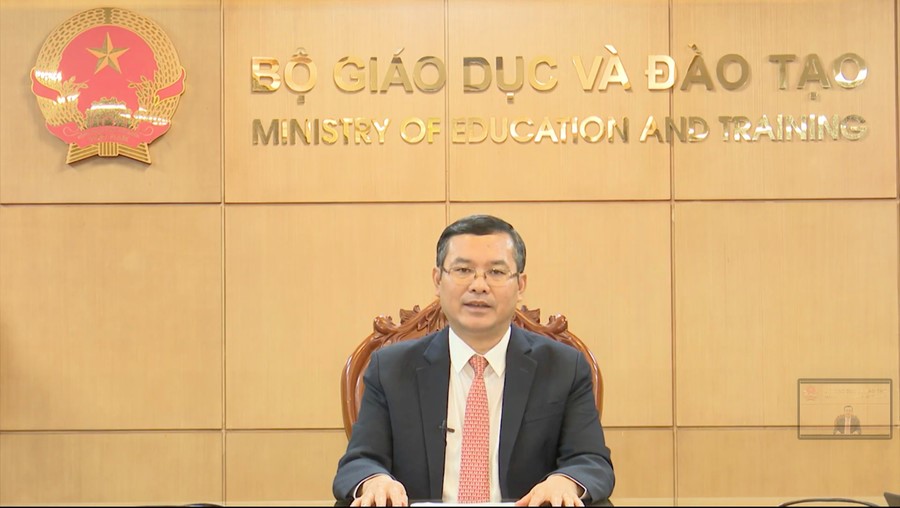
“As leaders in the education sector, we have a responsibility to explore and promote the development of AI in order to provide the best possible experiences for learners, especially given the significant benefits AI can bring to organisational and school management,” the Deputy Minister remarked in his speech.
Mr. Nguyen Van Phuc expressed his hope that the seminar would feature in-depth discussions on the application potential of AI, while also proposing solutions and methods for its effective integration.
Representing SEDC, Mr. Le Thang Loi, First Deputy Director of the Centre, stated in his welcome remarks that Vietnam is entering a phase of growth, with a strong determination to become a prosperous nation. To achieve this ambitious goal, the leadership of the Party and the State emphasised that Vietnam’s development path cannot be separated from global trends and human civilisation. This further elevates the importance of scientific and technological revolution, where AI plays a central role. Mr. Loi believed that this seminar would actively contribute to these aims, while also enhancing understanding, fostering cooperation, and spreading positive values.
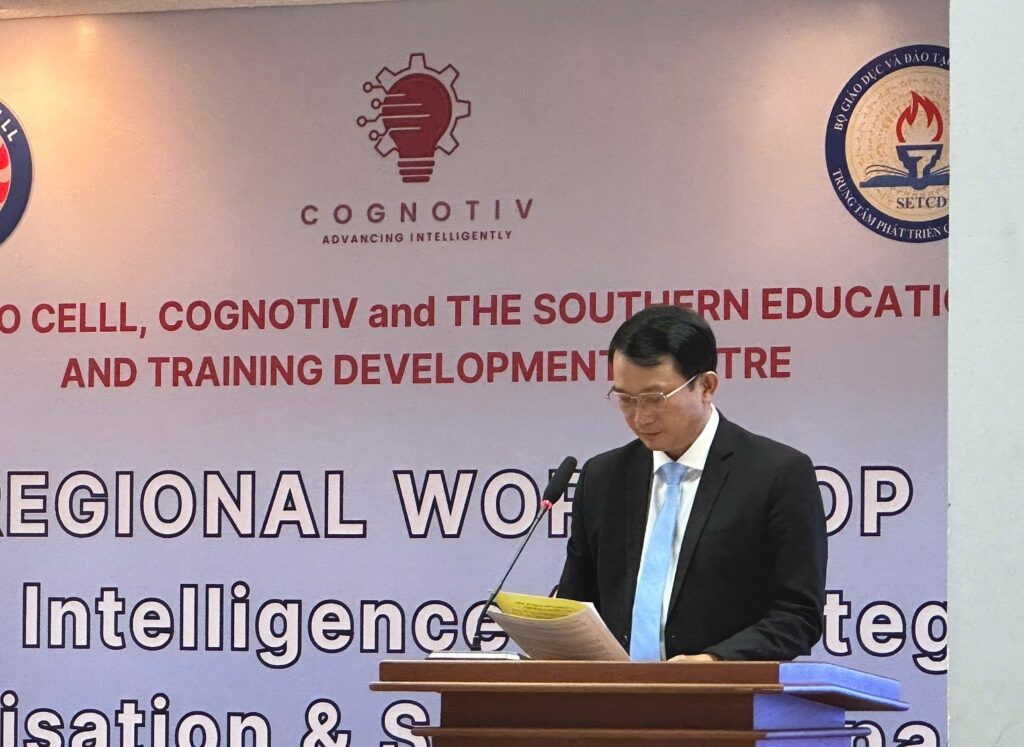
As the organising unit and liaison connecting all parties for the seminar, SEAMEO CELLL has high expectations for a successful outcome on all fronts. On behalf of the entire staff, Dr. Le Thi My Ha, the Centre’s Director, shared that in recent years, the integration of Information and Communication Technology (ICT) and Artificial Intelligence (AI) into organisational management – and especially in education – has become a trend with the potential to reshape organisational and school management as well as learning processes. ICT and AI are opening up unprecedented opportunities to enhance operational outcomes, improve educational quality, and expand learning beyond the traditional classroom environment.
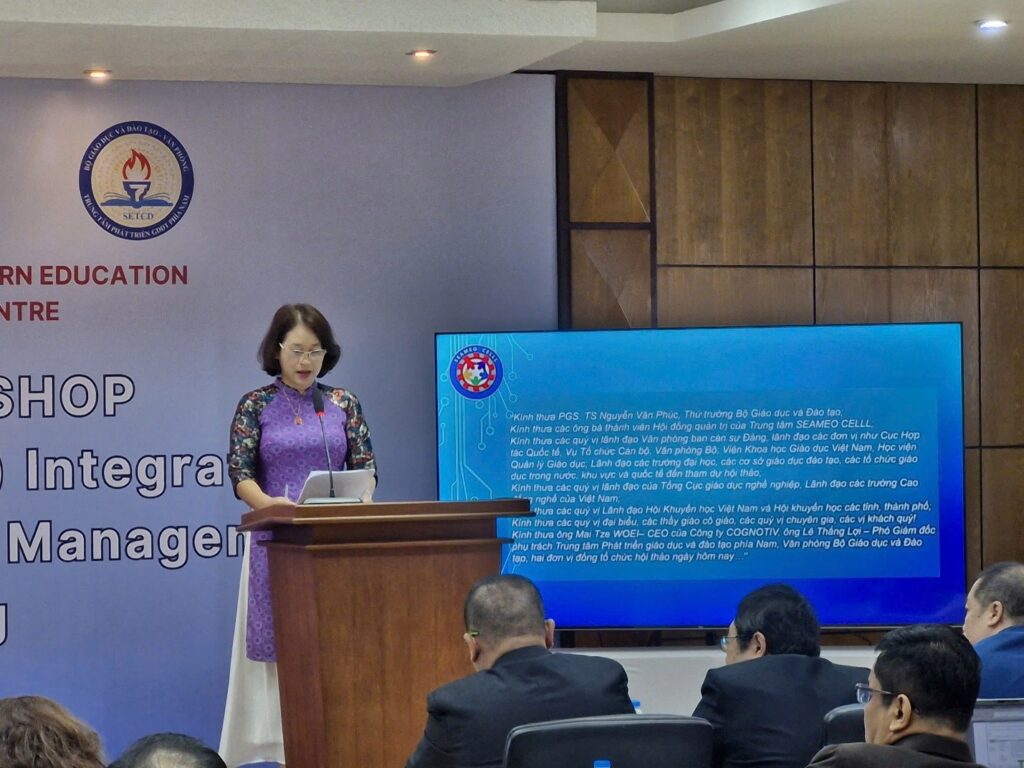
Dr. Le Thi My Ha quoted UNESCO’s perspective on Sustainable Development Goal 4 (SDG 4): “Artificial Intelligence (AI) has the potential to address some of today’s greatest challenges in education, revolutionise teaching and learning methods, and accelerate progress towards SDG 4…” Building on this, she emphasised that AI and ICT are not merely supportive tools but are pivotal drivers in reshaping the roles of administrators, teachers, and students in today’s modern working and educational environments. By applying these technologies, organisations and educational institutions can enhance the efficiency of organisational and school management, enabling administrators, lecturers, and teachers to focus more on their assigned tasks.
Following this, Dr. Le Thi My Ha delivered a keynote report titled “AI and its Potential Applications in Organisational Management, Teaching, and SEAMEO CELLL’s Activities.” In her report, Dr. Ha highlighted one of AI’s capabilities: simplifying organisational and school management processes, reducing administrative burdens, and freeing up valuable time for management teams, especially teachers, to focus on teaching and interacting with students. Tasks such as grading, attendance tracking, and scheduling can be automated, leading to more efficient school management.
The seminar continued with presentations from international speakers – SEAMEO CELLL Governing Board members from Laos, Myanmar, and Cambodia – who each delivered insights on the status of AI applications in education within their respective countries. This session provided fresh perspectives on the current use of artificial intelligence in education across the region.
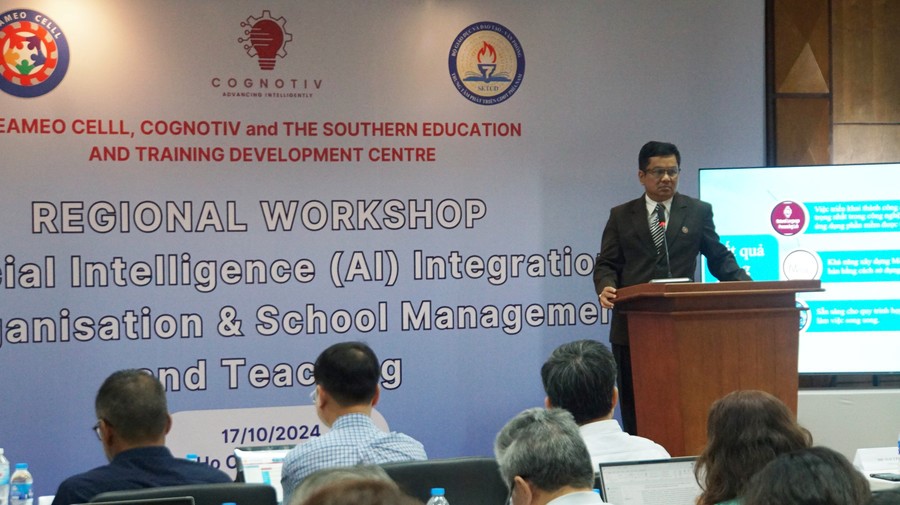
In the picture : Dr. Win Pe (Myanmar) – Governing Board member of SEAMEO CELLL
The team of experts from Cognotiv, Singapore, are highly accomplished professionals with extensive experience in Computer Science research, particularly with in-depth knowledge of AI. Their session on “The Application of AI in Organisational Management, School Management, Teaching, and Future Trends in AI Applications” was meticulously prepared and carefully structured into smaller, well-organised subtopics. This approach made it easier for attendees to absorb the relatively new areas of knowledge being presented.
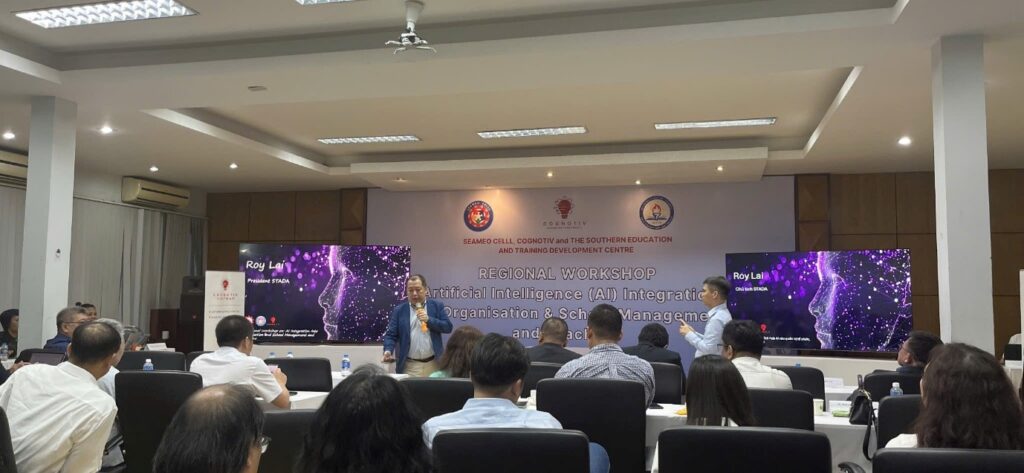
Before concluding the morning session, the seminar programme also included a Memorandum of Understanding signing ceremony between SEAMEO CELLL, Cognitive, and four universities and colleges: Hanoi University of Sports and Physical Education, Mekong University, Van Lang University, and Ba Ria – Vung Tau Technical College.
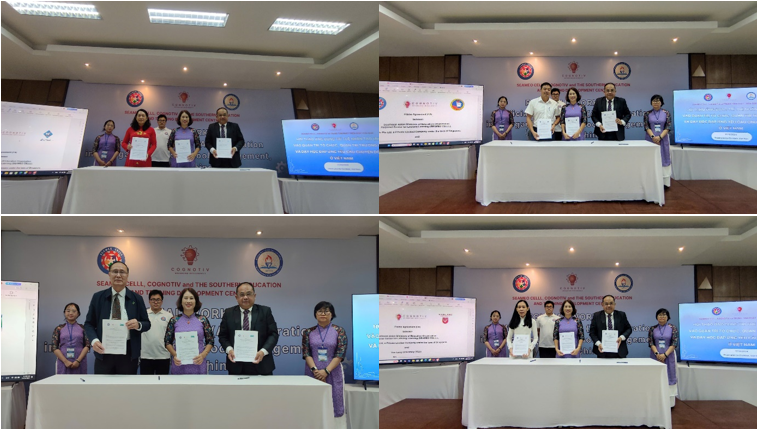
The afternoon session continued with presentations from representatives of Cognitive. A notable feature of the seminar is the absence of monotony or complexity, despite the abstract nature of the topic. This is achieved through the skillful and nuanced approach of the Cognitive experts in delivering their lectures, combined with group activities, engaging stories, humorous examples, and well-integrated visual games.
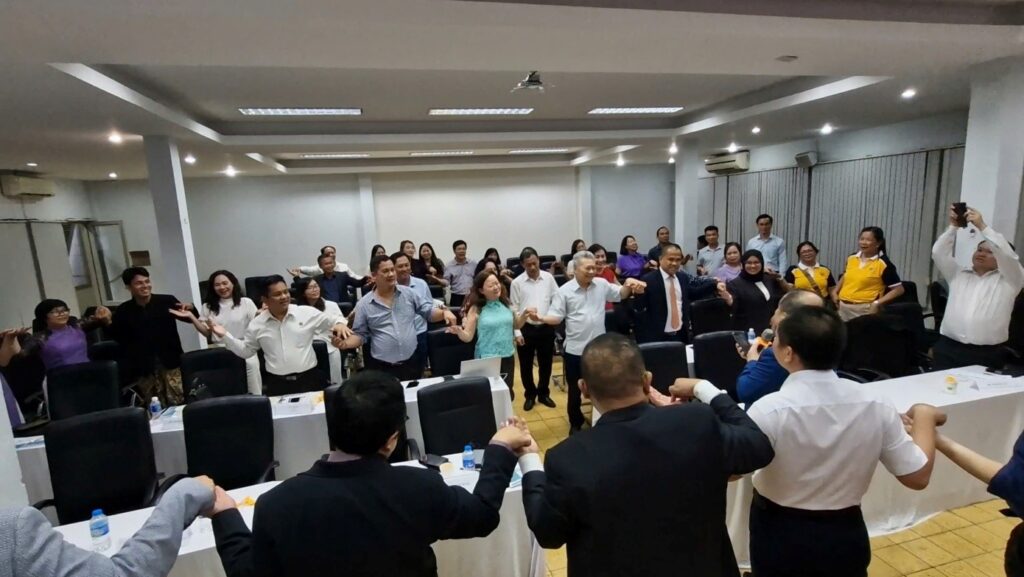
Next, presentations from various national and international educational institutions were delivered. All were highly in-depth and well-prepared. This reflects the spirit of participation at the seminar, which is not only demonstrated by the number of delegates in attendance but also by the significant professional contributions that were very commendable.
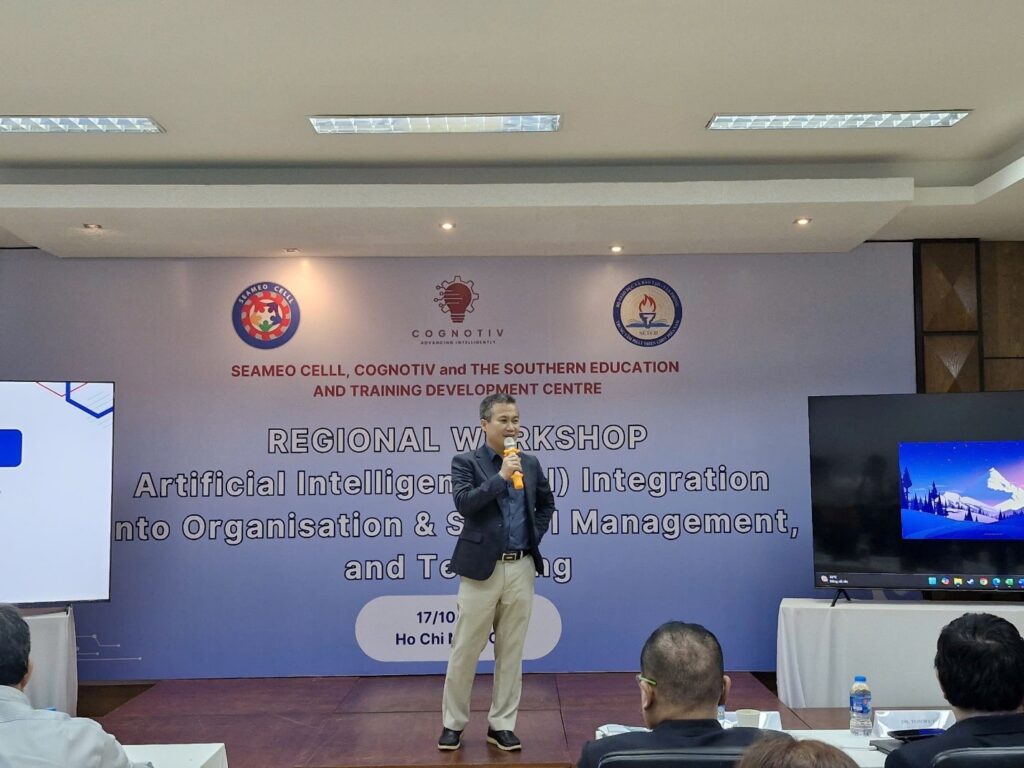
In the picture : Mr Kieu Huy Hoa – Director of Khan Academy Vietnam
The seminar continued with lively group activities involving all attendees in the auditorium before the concluding summary. In her closing speech, Dr. Le Thi My Ha expressed her happiness at the success of the seminar. She extended her sincere thanks to the delegates for their interest and for taking the time to participate in the event; to the partners for their trust and efforts in coordinating the preparations; she also acknowledged the tireless efforts of the staff team. Dr. Le Thi My Ha hoped that the Centre can organise many more successful events like this seminar and have the opportunity to welcome experts and distinguished guests to SEAMEO CELLL
